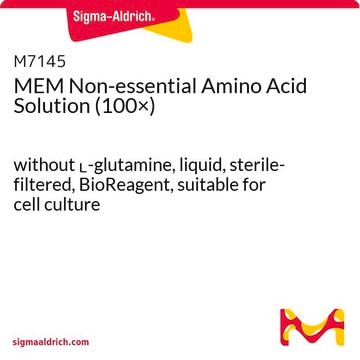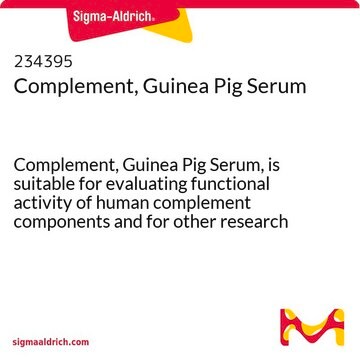G8541
Ala-Gln
200 mM, solution, sterile-filtered, Biotechnology Performance Certified
Synonym(s):
Alanyl-glutamine, Glutamine-S
About This Item
Recommended Products
grade
Biotechnology Performance Certified
Quality Level
sterility
sterile-filtered
form
solution
concentration
200 mM
impurities
endotoxin, tested
storage temp.
2-8°C
SMILES string
NC(CC[C@H](NC([C@@H](N)C)=O)C(O)=O)=O
InChI
1S/C8H15N3O4/c1-4(9)7(13)11-5(8(14)15)2-3-6(10)12/h4-5H,2-3,9H2,1H3,(H2,10,12)(H,11,13)(H,14,15)/t4-,5-/m0/s1
InChI key
HJCMDXDYPOUFDY-WHFBIAKZSA-N
Looking for similar products? Visit Product Comparison Guide
General description
Application
Other Notes
Storage Class Code
10 - Combustible liquids
WGK
WGK 1
Flash Point(F)
Not applicable
Flash Point(C)
Not applicable
Choose from one of the most recent versions:
Already Own This Product?
Find documentation for the products that you have recently purchased in the Document Library.
Customers Also Viewed
Articles
Importance and uses of glutamine in hybridoma and mammalian cell culture
Importance and uses of glutamine in hybridoma and mammalian cell culture
Importance and uses of glutamine in hybridoma and mammalian cell culture
Importance and uses of glutamine in hybridoma and mammalian cell culture
Related Content
Monitor barrier formation using colon PDOs, iPSC-derived colon organoids, Millicell® cell culture inserts, and the Millicell® ERS. 3.0.
Monitor barrier formation using colon PDOs, iPSC-derived colon organoids, Millicell® cell culture inserts, and the Millicell® ERS. 3.0.
Our team of scientists has experience in all areas of research including Life Science, Material Science, Chemical Synthesis, Chromatography, Analytical and many others.
Contact Technical Service








